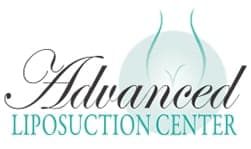Our Facial Rejuvenating Treatment Makes Aging Easier to Face
When collagen supplies wane, skin loses elasticity, reducing definition around the jaw and cheeks, and causing jowls to sag. This is a particularly dreadful development, as this area has always been difficult to rejuvenate – at least, without artificial-looking results.
Luckily, though, that’s no longer the case! We offer several minimally invasive procedures for restoring uplifted, youthful, natural appearances, including our Silhouette Facelift, which does a spectacular job on the lower face and neck. An outpatient procedure, it can usually be performed, under local anesthetic, in a few hours; and it requires only 3-5 days for recovery. Indeed, this amazing treatment makes aging a lot easier to face!
How long do the effects of various facial rejuvenation treatments typically last?
The duration of the effects of facial rejuvenation treatments can vary depending on the specific procedure or treatment modality used. Here’s a general overview:
1. Neurotoxins (e.g., Botox): The effects of neurotoxin injections typically last around 3 to 6 months. Repeat treatments are needed to maintain results.
2. Dermal Fillers: The longevity of dermal filler results varies based on the type of filler used. Hyaluronic acid fillers may last 6 to 18 months, while longer-lasting fillers can provide results for up to 2 years or more.
3. Chemical Peels: The effects of chemical peels can last several months to a year, depending on the depth of the peel and the specific concerns being addressed.
4. Laser Resurfacing: The duration of results from laser skin resurfacing can vary. Mild treatments may need to be repeated more frequently, while more intensive treatments may provide longer-lasting effects.
Are there natural or holistic approaches to facial rejuvenation?
Yes, there are natural and holistic approaches to facial rejuvenation that focus on enhancing overall skin health and well-being. While these methods may not provide the same immediate and dramatic results as surgical or invasive procedures, they aim to promote long-term skin health and a more youthful appearance. Here are some natural and holistic approaches to facial rejuvenation:
1. Healthy Diet: A well-balanced diet rich in antioxidants, vitamins, and minerals can support skin health. Foods such as fruits, vegetables, whole grains, and lean proteins contribute to overall well-being.
2. Hydration: Drinking an adequate amount of water helps maintain skin hydration, promoting a plump and youthful appearance. Hydrated skin is less prone to dryness and fine lines.
3. Skincare Routine: Establishing a consistent skincare routine is crucial. This may include cleansing, moisturizing, and using products with ingredients like retinoids, peptides, and hyaluronic acid known for their skin-renewing proerties.
How does the recovery process differ between surgical and non-surgical facial rejuvenation?
The recovery process for surgical and non-surgical facial rejuvenation differs significantly due to the nature of the procedures. Here’s a general comparison: Surgical Facial Rejuvenation:
1. Downtime: Surgical procedures usually involve more significant downtime. Patients may need to take a week or more off work to allow for initial recovery.
2. Swelling and Bruising: Swelling and bruising are common after surgical procedures, and they may take several weeks to subside.
3. Healing Time: Surgical rejuvenation often requires a longer healing time for incisions to fully heal, and patients may be advised to avoid strenuous activities during this period.
4. Follow-up Appointments: Patients typically have multiple follow-up appointments with the surgeon to monitor healing and address any concerns.
Non-Surgical Facial Rejuvenation:
1. Minimal Downtime: Non-surgical procedures generally have minimal downtime, and many patients can resume regular activities immediately or shortly after treatment.
2. Swelling and Bruising: While there may be some swelling or bruising, it is usually less pronounced compared to surgical procedures and tends to resolve more quickly.
3. Immediate Results: Non-surgical treatments often provide immediate or rapidly visible results, although some treatments may require multiple sessions for optimal outcomes.
Can facial rejuvenation be performed on individuals with underlying medical conditions?
The suitability of facial rejuvenation for individuals with underlying medical conditions depends on the specific health condition, the type of rejuvenation procedure, and the overall health status of the individual. It is crucial to consult with a qualified healthcare professional to assess whether facial rejuvenation is safe and appropriate for a person with underlying medical conditions. Considerations:
1. Medical History: The healthcare provider will review the individual’s medical history, including any existing health conditions, medications, and previous surgeries.
2. Type of Rejuvenation: The type of facial rejuvenation procedure matters. Non-surgical options may be more accessible for individuals with certain medical conditions compared to invasive surgical
procedures.
